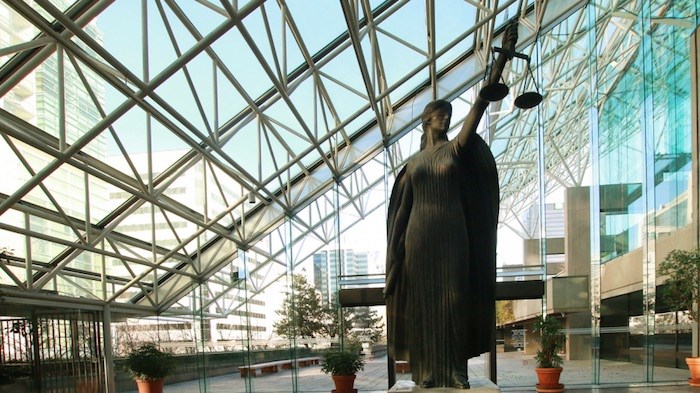A B.C. Supreme Court judge has sentenced a Vancouver man to 21 months in jail for a sexual assault on a woman he shared a house with.
Justice Jasvinder Basran said in a newly released March 14 decision that a jury convicted Alifaisal Azim of the April 13, 2019, offence on Sept. 22, 2022. And, that could cost him his residency in Canada as he is here on a work permit after being a refugee in Ireland.
The judge found that in the late hours of April 12, 2019, and into the early morning, A.B. consumed a great deal of alcohol and became intoxicated. With help from friends, she returned to her residence where Azim, now 30, and two others lived.
“After communicating with Mr. Azim for several minutes while she was in the bathroom, she went to her bedroom. Mr. Azim followed her into her bedroom and they had unprotected sexual intercourse,” Basran said.
The judge found A.B. did not consent to the sexual activity, that she lacked the capacity to do so because of her advanced state of intoxication.
However, the judge said, “I am not satisfied that Mr. Azim commenced the sexual activity with A.B. when she was unconscious or that she became unconscious at any time during the sexual activity or, if she did, that Mr. Azim was aware of this.”
Nonetheless, Azim was charged.
A.B., in a victim impact statement, said her emotional lifestyle was altered by the event, forcing her to question her trust in others and herself.
“It also created emotional distance between her and her family in Ireland,” Basran said. “Furthermore, A.B. observed that her home was no longer a safe place and, instead, she felt scared and vulnerable in this location.”
Further, she experienced some soreness and bruising and felt compelled to take a morning‑after pill, which she had never previously taken and would not wish to take in any other circumstance, state court documents.
A.B. also had to take time off work, and eventually resigned as a pub manager because she needed less interaction with people.
She sees a counsellor and expects that this will continue over the long-term.
“She took a significant pay cut and changed jobs three times in the following two years, and this hurt her financially,” the judge said.
A.B. did not seek a restitution order.
“Regrettably, the sexual assault (A.B.) endured has left her with painful memories and emotions that she has been trying to work through for almost four years after the offence took place,” the judge said.
Basran said Azim expressed genuine deep shame, remorse and embarrassment for his actions.
Azim’s possible removal from Canada
When Azim was 18 months old, his parents and younger sister fled Afghanistan and obtained refugee status in Ireland. He grew up in a Dublin suburb and obtained a degree in computer science and software engineering.
In the fall of 2018, Azim obtained a two‑year permit to work in Canada and he relocated to Vancouver.
“As a consequence of his criminal conviction in this matter, Mr. Azim is inadmissible to Canada and he will likely be deported back to Ireland after serving his sentence,” Basran said.



